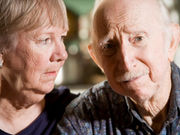Poor caregiver well-being, especially severe fatigue, also linked to increased ER use
THURSDAY, Aug. 31, 2017 (HealthDay News) — Poor spousal caregiver well-being is associated with increased care recipient expenditures and emergency department use, according to a study published online Aug. 24 in the Journal of the American Geriatrics Society.
Claire K. Ankuda, M.D., M.P.H., from the University of Michigan in Ann Arbor, and colleagues conducted a prospective cohort study involving 3,101 home-dwelling spousal dyads in which one individual was aged 65 years and older and had one or more activity of daily living or instrumental activity of daily living disabilities.
The researchers found that after minimal adjustment, caregiver depressive symptoms score and six of 17 caregiver well-being measures were prospectively associated with higher care recipient expenditures. After full adjustment, the significant association for higher care recipient expenditures with caregiver fatigue (cost increase, $1,937) and caregiver sadness (cost increase, $1,323) persisted. After minimal adjustment, four of 17 caregiver well-being measures, including severe fatigue, were significantly associated with care recipient emergency department use. After full adjustment, the increased odds of care recipient emergency department use remained significantly associated with caregiver fatigue (odds ratio, 1.24) and caregiver fair to poor health (odds ratio, 1.23). There was no correlation for caregiver total sleep score with care recipient outcome.
“Poor caregiver well-being, particularly severe fatigue, is independently and prospectively associated with higher care recipient Medicare expenditures and emergency department use,” the authors write.
Copyright © 2017 HealthDay. All rights reserved.








